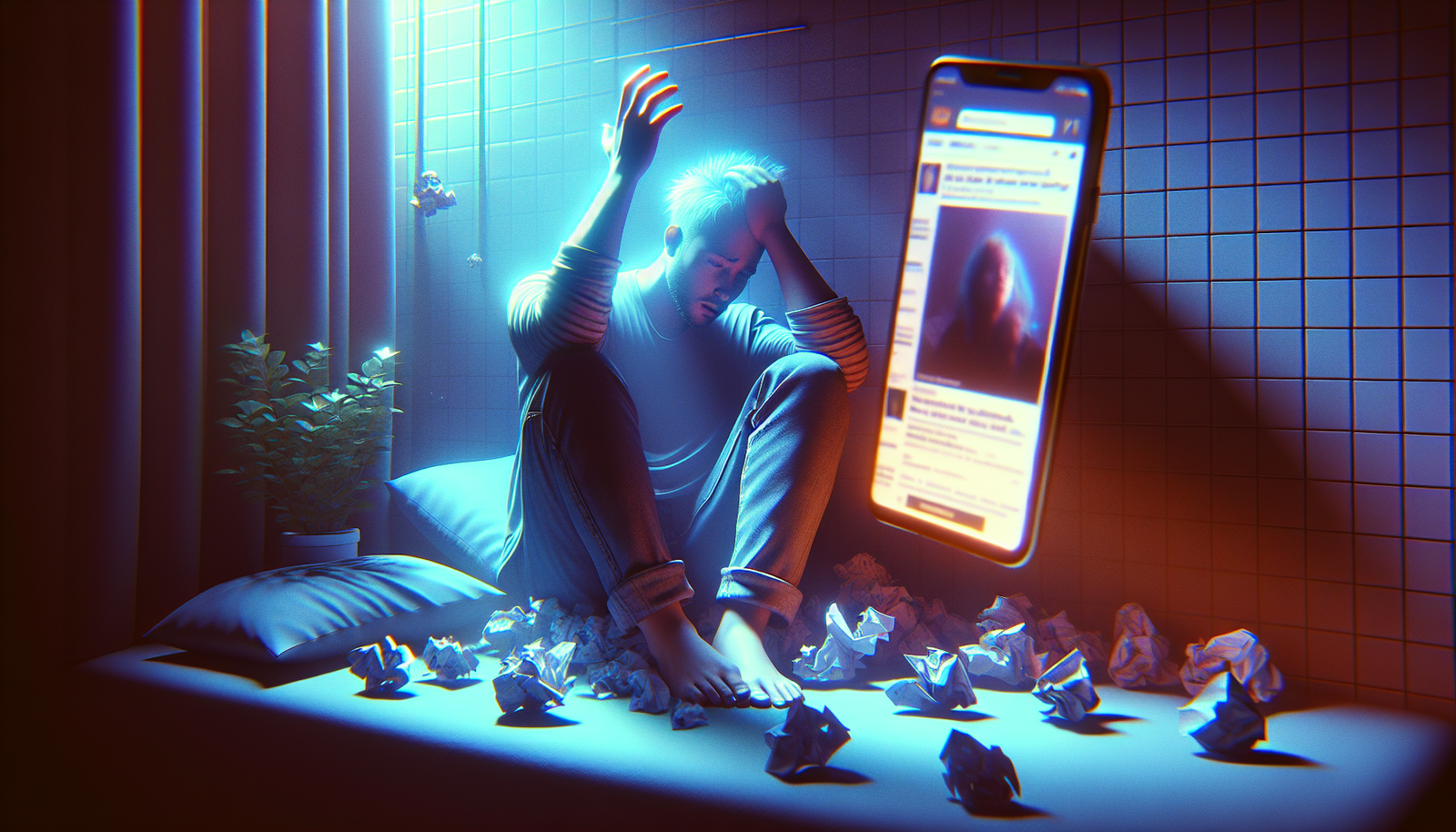The impact of online content on mental health is becoming an unprecedented serious issue. A recent study reveals the alarming correlation between *repeated exposure* to negative content and the worsening of psychological symptoms. Mentally vulnerable individuals are more likely to consult this content, thereby reinforcing a *vicious cycle* that is harmful to their well-being.
The research reveals that *the type of content* consumed can directly influence mood and behavior. This phenomenon raises essential questions about the responsibilities of digital platforms and the psychological mechanisms at play. The findings call for a collective awareness in the face of this digitalized reality.
Impact of negative content on mental health
Recent studies have highlighted a significant link between the consumption of negative content online and the worsening of mental health disorders. Researchers at MIT found that individuals struggling with psychological issues are more inclined to turn to this type of content, which further alters their psychosocial state. This dynamic creates a vicious circle, where exposure to negative information exacerbates pre-existing symptoms.
Research on online behaviors
Researchers analyzed the browsing habits of over 1,000 participants, using natural language processing techniques to evaluate the emotions evoked by the various pages visited. The results showed that anxious or depressed users tended to gravitate toward websites that elicited feelings of fear, anger, or sadness. In contrast, surveyed participants who browsed pages considered less negative reported a improvement in their mood.
Designing an intervention tool
In light of these findings, researchers developed a digital tool called “Digital Diet”. This tool allows users to evaluate Google search results across three categories: emotion, knowledge, and actionability. These scores guide individuals to select more beneficial content for their mental health. According to the tests, those using this tool selected fewer negative contents and made more constructive choices.
Participants’ reactions
In the context of the experiments, participants who received indications about the emotional effects of their searches showed a clear preference for positively connotated content. The concept of emotional transparency in search results fosters a better awareness of the impact of content choices on users’ mental states.
Psychosocial consequences
The research also emphasizes that the type of content consumed directly influences self-perception and self-esteem. Increased exposure to anxiety-inducing content resembles a self-aggravation, similar to an addiction, where individuals feel drawn to what harms them nonetheless. Ultimately, the findings reveal the urgency of considering the psychosocial implications of a digital environment saturated with negative information.
Toward better content regulation
There is a need to reflect on the necessity of adopting practices for regulating online content. Previous studies have also indicated harmful effects of social media on mental health, prompting the creation of norms aimed at protecting vulnerable users. The balance between access to information and psychological well-being constitutes a major challenge for researchers and mental health professionals.
Future perspectives
Ongoing work on the interaction between online behavior and mental health opens the door to new interventions. Researchers, such as Tali Sharot and Christopher Kelly, call for the promotion of strategies aimed at reducing exposure to harmful content. The “Digital Diet” tool may serve as a potential support tool for individuals seeking help amidst intensive digital media use. A better understanding of psychological impacts seeks to break the cycle of symptoms.
Frequently asked questions about the impact of negative online content on mental health
What is negative online content?
Negative online content encompasses information and publications that evoke emotions such as fear, sadness, anger, or anxiety. This includes alarming news, rumors, and discussions about tragic events.
How does consuming negative online content affect mental health?
Regularly consuming negative content can lead to worsening symptoms of mental health issues, such as anxiety and depression, by creating a vicious cycle of exposure and reinforcement of negative emotions.
Are there studies that support the idea that negative online content exacerbates mental health issues?
Yes, several studies, including those conducted by MIT, show a bidirectional relationship between consuming negative content and the worsening of mental health symptoms in users.
How can I tell if the content I am consuming is negative?
Content can be judged as negative based on the associated emotions. Emotions such as sadness, fear, or anger in response to reading or viewing an article or video indicate potentially harmful content.
What strategies can help avoid negative content?
Strategies such as using filters on social media, limiting online time, and opting for positive or neutral content can reduce exposure to negative content.
Can I improve my mood by changing what I consume online?
Yes, choosing more positive or neutral content has been associated with mood improvement and a reduction in associated mental health symptoms. This can include articles, videos, or online communities focused on constructive themes.
Does following positive influencers have an impact on my mental health?
Yes, following influencers who promote messages of positivity, motivation, and well-being can contribute to better mental health and a reduction in negative emotions.
What should I do if I experience worsening symptoms after consuming negative content?
It is advisable to disconnect and seek calming activities, such as meditation or exercise. If symptoms persist, consulting a mental health professional is recommended.
How can I measure the impact of the content I consume on my well-being?
You can keep a mood journal before and after browsing the internet, which allows you to assess how different types of content affect your emotions and well-being.
Are there tools to filter online content and improve my mental health?
Yes, there are browser extensions and filtering tools that can help evaluate and choose content based on its emotional impacts.






